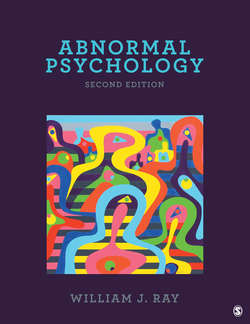Читать книгу Abnormal Psychology - William J. Ray - Страница 120
На сайте Литреса книга снята с продажи.
Logic and Inference: The Detective Work of Science
ОглавлениеPerhaps you have heard the story of our friend from Boston who got up every morning, went outside his house, walked around in a circle three times, and yelled at the top of his voice. His neighbor, being somewhat curious after days of this ritual, asked him for the purpose behind his strange behavior. The man answered that the purpose was to keep away tigers. “But,” the neighbor replied, “there are no tigers within thousands of miles of here.” To this, our friend responded, “Works quite well, doesn’t it?”
How could we demonstrate to our friend that his yelling is not causally related to the absence of tigers? One strategy might be to point out that the absence of tigers might have come about for other reasons, including the fact that there are no tigers roaming in the greater Boston area. Our friend’s reasoning was incorrect because it overlooked many other plausible explanations for the obvious absence of tigers. Although our friend sought to infer a relationship between his yelling and the absence of tigers, his inference was weak.
Logic is particularly important in science as an aid to answering this question: What question should my experimental study answer to test my ideas about the world? That is, logic can help us to answer questions of inference. Inference is the process by which we look at the evidence available to us and then use our powers of reasoning to reach a conclusion. Like Sherlock Holmes engaged in solving a mystery, we attempt to solve a problem based on the available evidence. Did the butler do it? No, the butler could not have done it because there was blond hair on the knife and the butler had black hair. But perhaps the butler left the blond hair there to fool us. Like a detective, scientists try to determine other factors that may be responsible for the outcome of their experiments or to piece together available information and draw general conclusions about the world. Also like the detective, the scientist is constantly asking, “Given these clues, what inference can I make, and is the inference valid?” Logic is one method for answering these questions.
Inference: the process by which we look at the evidence available and then use logic to reach a conclusion
What type of evidence would you need to show that a vaccine did not lead to the development of autism?
© iStockphoto.com/Gajus
One example of using logic to help solve a question in psychopathology involved the relationship between giving a child the MMR (measles, mumps, and rubella) vaccine and the development of autism. In the late 1990s, based on one published study (which was later discredited by the journal in which it appeared), it was suggested in the media that the MMR vaccine led to the development of autism. The MMR vaccine is given to a child around 12 to 15 months of age. The first signs of autism appear around 15 to 18 months of age. Thus, it was argued that the vaccine led to the development of autism. What type of evidence would you need to show this was not the case? You might first ask if everyone who receives the vaccine develops autism. Since many who receive the vaccine do not develop autism, then if the relationship exists, it is not a simple one. More important from a logical standpoint, you might ask if there exists a child who did not receive the vaccine but did develop autism. This would help to rule out vaccination being the single cause of autism. As you will see in Chapter 5, a critical finding is that there are signs of autism in children before the age of vaccinations. Thus, logically, researchers were able to rule out vaccines as the single cause of autism.
